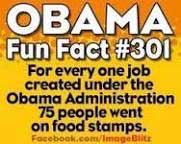The Washington Examiner Wednesday, October 30,
Post# of 165

Wednesday, October 30, 2019
Opinion
The Ukraine whistleblower's reported ties to a 2020 Democrat raise important questions
by Kaylee McGhee
| October 09, 2019 09:44 AM
Yesterday, the Washington Examiner’s Byron York reported that the anonymous Ukraine whistleblower has ties to a Democratic candidate vying for the presidency. It’s unclear who that candidate is or what kind of relationship they have, but the allegations should force us to question whether the whistleblower was indeed politically motivated.
It’s important to distinguish the legitimacy of the whistleblower complaint from this person’s motivations. The whistleblower’s account still stands: It’s been confirmed by the transcript released by the White House, and another anonymous whistleblower — this one with firsthand knowledge — has also come forward.
None of the allegations against President Trump have changed. But the reasons for bringing those allegations up in the first place may be very different than originally presented.
Three sources are on record confirming an Aug. 26 letter written by the Intelligence Community’s inspector general, Michael Atkinson, who wrote that the whistleblower showed “some indicia of an arguable political bias … in favor of a rival political candidate.”
Depending on the nature of this connection — say, if this person has a vested interest in the election of a Democrat — the whistleblower could be guilty of a blatant conflict of interest. Ironically, that's the very problem with Trump's phone call with the Ukrainian president, according to the whistleblower’s complaint. Trump used his political position to advance a personal agenda, and it now seems the whistleblower did the same.
The whistleblower had every legal right to anonymously bring forward his complaint and keep his or her identity a secret. But whistleblowers are required to disclose any political connections so the intelligence community can thoroughly investigate and vet complaints for conflicts of interest that could point to corruption.
For all we know, the whistleblower may have informed the intelligence community of this alleged connection to a 2020 candidate. And the intelligence community might have decided to move forward with the complaint anyway because it was reliably sourced and confirmed by others in the administration.
Regardless, we now have a lot of questions without answers: Did the House Democrats know of the whistleblower’s alleged ties to a 2020 candidate? Could this alleged relationship be part of the reason why Democrats insist on keeping the whistleblower’s identity a secret? Did the whistleblower exploit a loophole in the system to bring forward this complaint against the president?
We might never know who the whistleblower is, and perhaps that’s a good thing. The complaint has already been released; the damage is done. Republicans need to take the complaint at face value and deal with the facts. But the Democrats’ role in this demands attention. If they ignored a glaring conflict of interest from within their own party in order to launch an impeachment inquiry, they should be held accountable at the ballot box.
It seems House Democrats know a whole lot more than they’re letting on, and it’s time they start providing answers.
 (0)
(0) (0)
(0)